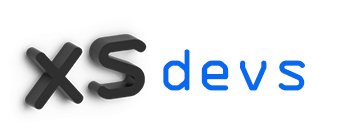If you’re new to coding, diving into the world of programming can seem overwhelming. However, with the right guidance and understanding of basic coding concepts, you can lay a solid foundation for your coding journey. In this article, we’ll explore some fundamental coding concepts that every beginner should know.
1. Variables and Data Types
Variables are containers used to store and manipulate data in a program. They have names and can hold different types of values, such as numbers, text, or Boolean values (true or false). Understanding data types is crucial, as it determines the kind of operations you can perform on variables.
2. Control Structures
Control structures allow you to control the flow of your program. The most common control structures are:
- Conditional Statements: These statements, like “if” and “else,” allow your program to make decisions based on certain conditions.
- Loops: Loops, such as “for” and “while,” enable your program to repeat a set of instructions multiple times.
3. Functions and Methods
Functions and methods are reusable blocks of code that perform specific tasks. They help break down complex programs into smaller, manageable parts. Functions take inputs, process them, and return outputs, while methods are functions associated with specific objects or classes.
4. Comments
Comments are lines in your code that are ignored by the compiler or interpreter. They are used to add notes and explanations to your code, making it easier to understand and maintain. Comments play a crucial role in collaborative coding and self-documentation.
5. Input and Output
Input and output (I/O) allow your program to interact with the user and the outside world. Input refers to the data provided to the program, while output refers to the information produced by the program. Common examples of I/O include reading user input from the keyboard and displaying output on the screen.
6. Debugging
Debugging is the process of identifying and fixing errors or bugs in your code. It involves analyzing the code, understanding the error messages, and using debugging tools to locate and resolve issues. Debugging is an essential skill for every coder, as it helps ensure the correctness and functionality of your programs.
7. Algorithms and Problem Solving
Algorithms are step-by-step procedures or instructions used to solve specific problems. They provide a logical and systematic approach to designing efficient solutions. Learning algorithms and problem-solving techniques is crucial for writing clean, optimized, and scalable code.
8. Version Control
Version control is a system that tracks and manages changes to your codebase. It allows you to keep a history of modifications, collaborate with others, and revert to previous versions if needed. Git, a popular version control system, is widely used by developers for efficient code management.
9. Documentation and Code Styling
Documentation involves writing clear and concise explanations of your code, its purpose, and how to use it. Proper documentation helps other developers understand and work with your code effectively. Code styling refers to following consistent conventions and formatting standards, enhancing readability and maintainability.
10. Problem Decomposition and Abstraction
Problem decomposition involves breaking down complex problems into smaller, more manageable sub-problems. Abstraction involves hiding unnecessary details and focusing on essential concepts or functionalities. These techniques help tackle complex programming tasks and improve code modularity and reusability.
Remember, learning to code is an ongoing process. Embrace a growth mindset, practice regularly, and explore real-world projects to strengthen your coding skills. With time and dedication, you’ll become more proficient and confident in your coding abilities.
Conclusion
Understanding these basic coding concepts is essential for beginners embarking on their coding journey. By grasping variables, control structures, functions, and other fundamental concepts, you’ll build a strong foundation for further learning. Embrace curiosity, seek out resources, and never hesitate to experiment and explore the vast world of coding.
FAQs (Frequently Asked Questions)
Q1: Is coding difficult to learn? A1: Coding can be challenging, especially in the beginning. However, with patience, practice, and a problem-solving mindset, anyone can learn to code.
Q2: What programming language should I start with as a beginner? A2: Python is often recommended as a beginner-friendly language due to its simplicity and readability. However, it ultimately depends on your goals and interests.
Q3: Do I need a computer science degree to become a coder? A3: While a computer science degree can be beneficial, it is not a requirement for becoming a coder. Many successful programmers are self-taught or have acquired skills through coding bootcamps and online resources.
Q4: How can I improve my coding skills? A4: Practice is key to improving your coding skills. Regularly work on coding projects, solve coding challenges, and seek feedback from experienced coders. Engaging in open-source projects and collaborating with other developers can also enhance your skills.
Q5: How long does it take to learn coding? A5: The time it takes to learn coding varies depending on factors such as your dedication, the complexity of the language or concepts you’re learning, and the amount of time you invest. Some basic coding skills can be acquired within a few months, but mastery takes years of practice and experience.

